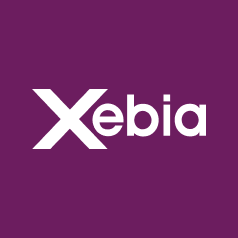Oh, we have a CRM, so technical and customer support is taken care of!
Well, it is exactly this attitude that got us where we are, with the world chanting away, “Digital Transformation,” “Customer Centricity” and things like that. Yes, a CRM tool does make things a lot easier when managing pre-sales and post-sales operations such as service requests, incidents, and investigations. That said, the question is how much easier can you make it?
» You can have more structured pre-sales and post-sales processes. By structured, we mean insight-driven, data-centric, and process oriented decisions on the multitude of options your support teams have in responding to questions and requests of potential and paying customers.
» Make interactions less ad hoc and more proven and insights-driven. For example, you can adapt case management workflows to derive decisions from historical data of the same customer, alongside analytics data from similar customers and the kind of choices they made. When going into a customer interaction, the more prepared you are, the greater your opportunity in:
- Responding to their questions
- Resolving their issues
- Reassuring them of your commitment to serving them better each day
- Reiterating your core value proposition
- Reminding them of why you have been their best choice, thus far
- Remediating the challenges they face, or may face, going forward
- Reimagining your own processes to remain steadfastly customer centric
- Rewarding yourself on a job well done – but of course!
» Map events and milestones to an effective timeline, which is otherwise difficult to accomplish. The simplest examples of such events and milestones are continuous service improvement, transformative initiatives, and product and service design and rollout.
Case Management - A case in point
While contact management is easy with a CRM tool you need a little more for the typical situations that most industry verticals face. Take regulatory compliance for instance, or patient care, property and casualty insurance, the list is almost endless where case management needs a lot more than merely handling contacts and documenting customer needs, and relevant data. The question now becomes, “So what is it that you need?”
Adding compliance requirements to the workflows of case management, as well as measuring and tracking the KPIs associated. Whether it is AML compliance for the BFSI vertical, Patient outcomes, Pharmacovigilance, and HIPAA compliance with the healthcare vertical, fraud prevention for insurance claims, to manufacturing, energy, field operations, logistics – the sheer diversity and uniqueness of the compliance requirements for each business case makes it imperative that your case management solution is customizable to a significant degree.
While traditional case management solutions do offer some features and functionalities to address some of these business cases, you almost always will need that little extra to add reliability to your case management operations.
Now, what do we do? We could look at Commercial Off The Shelf (COTS) solutions that provide the kind of features you need, or you could take matters into your own hands. Efficiently!
According to Allied Market Research, the global data monetisation market is expected to touch $371 billion by 2023. The retail market will contribute to about 11% of this number, growing at a CAGR of 36% from 2016- to 2023. This growth in the data monetisation market is primarily driven by a continuous rise in enterprise data, technological advancements in big data and analytics solutions, and increased focus of organisations to generate new revenue streams, the report adds. That said, security and privacy concerns related to data monetisation solutions will hold back market growth.
Low-code for Case Management
Traditional application development works too. But the advantages offered by low-code platforms, especially Appian, are too lucrative not to consider. The simplest example is that Appian’s low-code platform allows you to adopt an Agile DevOps approach to adding functionalities to your existing applications without disturbing your architecture or embarking on a large-scale transformation. The API-driven approach, combined with the Platform as a Service (PaaS) tenet of Appian’s Low-code platforms allows you to remain future resistant, while not compromising on ease of development, the time-to-market for your applications, or, for that matter, the ease of deployment and integration.
Yes, Appian is a great option – now how do we go about it? You can begin by assessing your existing systems, data sources, and infrastructure to identify a wishlist of critical, good-to-have, and future needs that you can begin working on. Subsequently, building low-code capabilities, while also transforming the organizational culture to embrace low-code and Agile-DevOps. Sound a little complicated? Not necessarily, if you have you have a clear roadmap and strategy in place. It does, however, help to have a partner who can:
» Map out your transformation journey and perform a maturity assessment that will in turn help in defining the roadmap for transformation
» Establishing industry best practices that would improve the outcomes of your transformation journey and reduce risks
» Establish robust capabilities for low-code, DevOps, continuous improvement, and adoption
» Encourage and nurture Citizen Developer programs aimed at improving stakeholder involvement and contribution to the development deployment cycle
» Significantly reduce time-to-market for low-code applications by bringing in accelerators, designs, and ready-to-market apps
» Bring in the wealth of experience with low-code that will enhance your transformation program and make it more predictable, reliable, and repeatable across business units, verticals, and business cases
Appcino – Low-code simplified
Appcino, a Xebia company specializes in providing low-code and no-code solutions for enterprise transformations at scale – an Elite Solution Partner for Appian, we have over 500 implementations under our belts as experience, 100+ accelerators and dedicated Intellectual Property (IP) designed to offer up to 70% in cost reduction and efficiency improvements.





